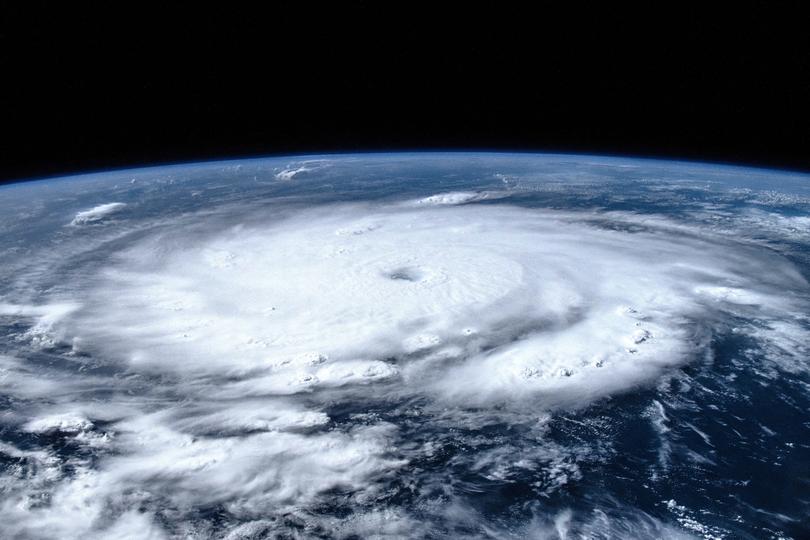Hurricane Beryl intensifying as it nears Texas after killing at least 11 in Caribbean
By the time Beryl reaches landfall near Houston on Monday it could be a category 2 storm, with wind speeds up to 177km/h.

Hurricane Beryl has strengthened as it nears the Texas coast, forcing the closure of major oil ports, flight cancellations and a warning it will be a deadly storm for communities hit.
Beryl, the earliest category 5 hurricane on record, last week swept through Jamaica, Grenada, St Vincent and the Grenadines, toppling buildings and power lines and killing at least 11 people.
The storm weakened after its deadly trail of destruction across the Caribbean, but strengthened into a category 1 hurricane as it crossed the warm waters of the Gulf of Mexico. Category 1 storms generate winds up to 153km/h.
Sign up to The Nightly's newsletters.
Get the first look at the digital newspaper, curated daily stories and breaking headlines delivered to your inbox.
By continuing you agree to our Terms and Privacy Policy.“Additional strengthening is expected before landfall on the Texas coast,” the US National Hurricane Centre (NHC) said in its latest advisory.
By the time Beryl reaches landfall near Houston on Monday it could be a category 2 storm, with wind speeds up to 177km/h.
Acting governor Dan Patrick on Sunday declared 120 counties to be disaster areas ahead of the storm and warned Beryl “will be a deadly storm for people who are directly in that path”.
School systems - including the state’s largest in Houston - said they would be closed as the storm approached.
“The bottom line is, it’s all hands on deck,” Houston Mayor John Whitmire said during an earlier briefing Sunday. “This storm has been unpredictable since Day One.”
Airlines cancelled hundreds of flights, and officials ordered a smattering of evacuations in beach towns.
Closures of major oil-shipping ports around Corpus Christi, Galveston and Houston ahead of the storm could disrupt crude oil exports, shipments of crude to refineries, and motor fuel from the plants.

Most of the northern Gulf’s offshore oil and gas production is east of Beryl’s forecast track.
Some oil producers, including Shell and Chevron, had evacuated personnel from their Gulf of Mexico offshore production platforms ahead of the storm.
Citgo Petroleum said it plans to keep the Corpus Christi refinery running at minimum production as the storm moves up the coast.
Gibson Energy, which operates a large oil terminal in Corpus Christi, said operations were continuing, but it would take further steps depending on the forecast.
The storm is expected to make landfall early Monday, local time, and is currently 100km south-southeast of Matagorda, Texas at 4.40pm, Monday AEDT and had sustained winds of 130km/h..
The US National Hurricane Centre issued a hurricane warning from Baffin Bay northward to San Luis Pass and said some parts of the state may get drenched with more than a foot (25 centimetres) of rain, and the center warned of “multiple life-threatening hazards.”
Surface temperatures in the Gulf are above average for this time of year, helping the storm strengthen, according to Alex DaSilva, lead hurricane forecaster at AccuWeather.
“The storm is starting to regain its organization,” DaSilva said in an interview. “There’s really not a whole lot stopping this thing now. It wouldn’t shock me if it becomes a Category 2 hurricane. That’s definitely in the cards.”
Storms are classified as hurricanes when their wind speeds reach 74 miles per hour, and upgraded to Category 2 at 96 miles per hour.
Beryl’s hurricane-force winds may drive as much as 7 feet (2.1 meters) of water onto parts of the coast as it approaches Texas, where a state of emergency has been declared in 121 counties. Exxon Mobil Corp. said Sunday it’s adjusting some operations as the storm approaches.
Patrick urged people in Texas to take shelter before the storm arrives, and to use caution if they must venture outside. Beryl caused devastation last week as it ripped through the Caribbean and Mexico and caused nine deaths. “We don’t want No. 10 to be in Texas,” he said.
